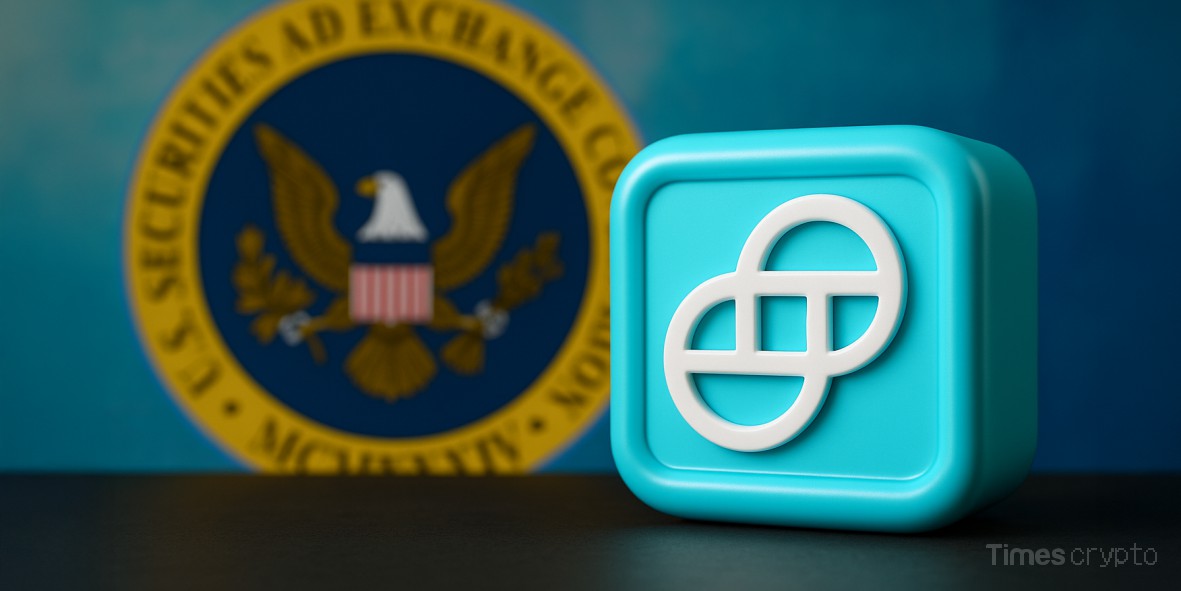Key Takeaways
- Lawyers for Gemini and SEC stated in a statement that they had reached an agreement in principle to “completely resolve” the case.
- The Earn program brought in approximately $900 million from 340,000 customers at its height.
- The closure of the case comes just days after Gemini recorded a bumper IPO.
- However, market participants are now placing bets on future development.
Crypto exchange Gemini and SEC settle the earn program dispute, brining a two year long battle to an end. The billionaire twins Tyler and Cameron Winklevoss owned platform was in a tussle with the U.S. regulator over its troubled lending program, earning it the infamous court case.
Attorneys for the SEC and Gemini stated in a statement sent to a federal court on Monday that they had reached an agreement in principle to “completely resolve” the case, subject to commission approval. Further, the parties have requested that Judge Edgardo Ramos postpone all due dates so they may turn in their final documentation by December 15.
The Earn program’s plan was to send customer assets to Genesis, which paid interest, and have Gemini collect fees of up to 4.29%. The SEC claims that investors were not provided with critical information, resulting in an unregistered securities offering.
Interestingly, the closure of the case comes just days after Gemini recorded a bumper IPO, marking yet another entry of a crypto firm in the Wall Street majors.
Gemini And SEC Lawsuit: What Had Happened?
The commencement of the Gemini and SEC standoff started back in 2023. The regulator had accused Gemini and Genesis Global Capital of violating securities laws and filed a lawsuit against them in January 2023.
At the core of the lawsuit was Gemini Earn, a scheme that allowed users to lend Genesis cryptocurrency in exchange for interest. Although it gained popularity among clients seeking to increase the value of their holdings, the SEC maintained that it ought to have been formally registered as a securities product.
Defending themselves, Gemini and Genesis said they were aware of the dangers, and argues against the interests being registered as securities. The case quickly escalated into a wider dispute between authorities and the bitcoin industry, raising hard questions about how loan and yield programs should be administered in the United States moving ahead.
The Earn program brought in approximately $900 million from 340,000 customers at its height. In November 2022, however, Genesis had also stopped withdrawals a few days after the FTX exchange declared chapter 11 bankruptcy. The move raised questions about the credibility of the crypto industry.
Additionally, Earn investors were unable to access their money once Genesis declared bankruptcy two months later. In a settlement with the SEC earlier this year, Genesis agreed to pay a $21 million fine without acknowledging any wrongdoing. Gemini has continuously refuted the accusations, though. The agency, under acting chair Mark Uyeda, also told the platform in February that it would not recommend enforcement action in a separate inquiry.
Court Case Closure Follows Gemini’s Successful IPO
The closure of the Gemini and SEC case follows Gemini’s successful IPO. Further, Gemini’s stock ended Monday at $32.52, up 16% from the $28 IPO price. As TimesCrypto reported earlier, the Gemini IPO saw offerings ending more than 20 times oversubscribed.
The public listing of the crypto platform was a stunning demonstration of demand that nearly compelled investment bankers to cease taking orders. In order to maintain orderly trading and a balanced offering, the company sold 15.2 million shares rather than 16.67 million, capping the total rise at $425 million.
Even though Gemini’s financials earlier revealed the firm incurring looses, the IPO was a perfect example of investor confidence in digital asset firms. However, market participants are now obviously placing bets on future development, even though the exchange’s losses in the first half of the year extended to almost $282.5 million. The enthusiasm is similar to Figure Technologies’s initial performance, when its shares surged 24%, and Circle’s first-day performance, when its shares shot up to 167%.



